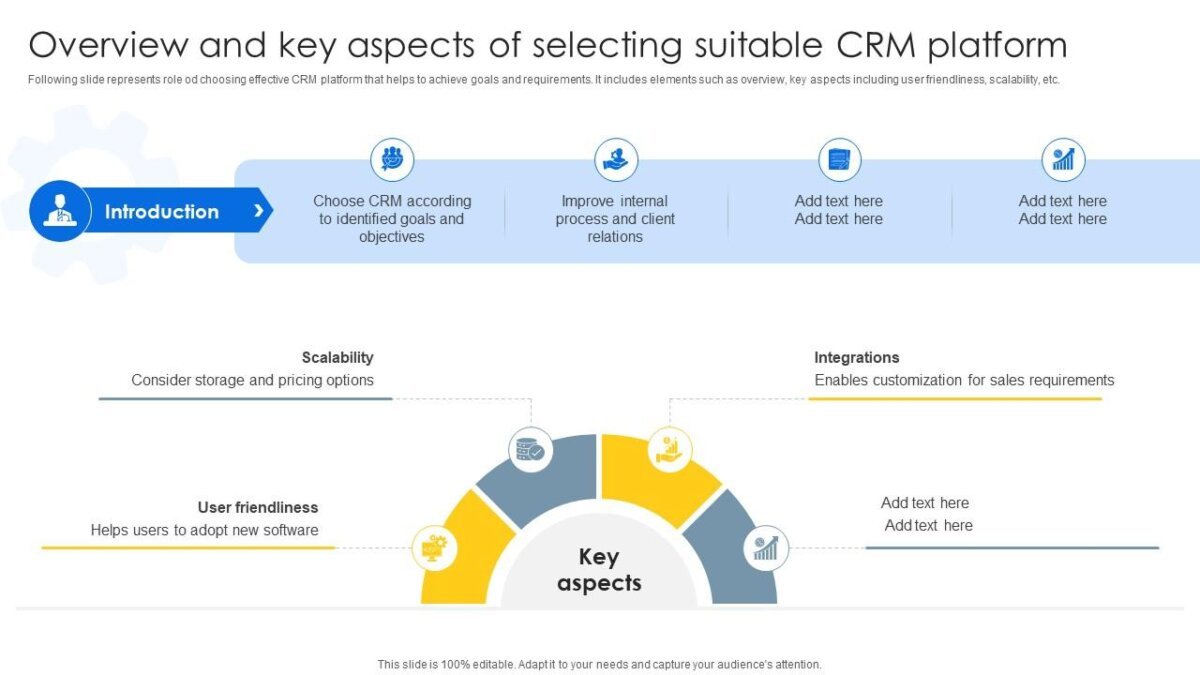Unlocking Sales Growth Using CRM-Powered GTM Campaigns is about transforming how you connect with customers. It’s about understanding them deeply, anticipating their needs, and building lasting relationships. This isn’t just about selling; it’s about creating value and growing together.
Unlocking Sales Growth Using CRM-Powered GTM Campaigns is crucial for sustainable business expansion. Similarly, understanding the power of a well-implemented CRM system is vital, especially in dynamic sectors like real estate. For example, managing leads and pipelines effectively is key, as explored in detail at CRM for Real Estate: Managing Leads and Pipeline Like a Pro , which provides valuable insights.
Ultimately, leveraging CRM is essential for Unlocking Sales Growth Using CRM-Powered GTM Campaigns and achieving optimal results.
We’ll explore how CRM (Customer Relationship Management) becomes the heart of your go-to-market strategy. We’ll dive into how to use data, automation, and smart strategies to boost your sales. From generating leads to keeping customers happy, CRM is the key to a stronger, more successful business. This guide provides a roadmap to help you reach your sales goals.
Defining CRM-Powered GTM Campaigns: Unlocking Sales Growth Using CRM-Powered GTM Campaigns
CRM-powered Go-to-Market (GTM) campaigns leverage the power of Customer Relationship Management (CRM) systems to drive sales growth. These campaigns are meticulously designed to utilize customer data, automate processes, and personalize interactions, leading to improved lead generation, sales efficiency, and customer retention. The core principle is to understand customer behavior and tailor strategies accordingly.
Explain the core components of a CRM-powered GTM campaign., Unlocking Sales Growth Using CRM-Powered GTM Campaigns
A CRM-powered GTM campaign hinges on several key components:
- Data Collection and Management: This involves gathering, organizing, and maintaining customer data within the CRM. This data includes contact information, interaction history, purchase history, and preferences.
- Lead Generation: Using CRM data to identify and target potential customers through various channels like email marketing, social media, and targeted advertising.
- Sales Automation: Automating repetitive tasks such as email follow-ups, appointment scheduling, and quote generation to free up sales representatives’ time.
- Sales Process Optimization: Streamlining the sales process by providing sales teams with the necessary tools and insights to close deals more efficiently.
- Customer Relationship Management: Building and nurturing relationships with customers through personalized communication and proactive support.
- Analytics and Reporting: Tracking key performance indicators (KPIs) to measure the effectiveness of the campaign and make data-driven decisions.
Provide examples of how CRM data fuels lead generation efforts.
CRM data is the engine that drives effective lead generation. For instance:
- Targeted Email Campaigns: Analyzing customer data to segment leads based on demographics, behavior, and interests, and then sending targeted email campaigns. For example, a company selling software could segment leads based on industry and send tailored content about features relevant to each industry.
- Lead Scoring: Assigning scores to leads based on their interactions with the company, such as website visits, email opens, and downloads. High-scoring leads are prioritized for sales outreach.
- Personalized Website Experiences: Using CRM data to personalize website content and offers for individual visitors. For instance, if a visitor has previously shown interest in a specific product, the website can display content related to that product.
Share how CRM integration enhances sales forecasting and pipeline management.

Source: slideteam.net
Unlocking sales growth with CRM-powered GTM campaigns requires a deep understanding of your customer. A crucial step in this process is visualizing the customer experience. By learning How to Build a Customer Journey Map with Microsoft Dynamics 365 , you gain valuable insights to optimize your strategies. This knowledge allows you to refine your GTM campaigns, leading to increased conversions and ultimately, unlocking significant sales growth.
CRM integration significantly enhances sales forecasting and pipeline management:
- Accurate Sales Forecasting: By analyzing historical sales data, current pipeline activity, and lead conversion rates, CRM systems can provide more accurate sales forecasts. This allows businesses to better plan resources and set realistic targets.
- Improved Pipeline Management: CRM provides a clear view of the sales pipeline, including the stage of each deal, the value of the deal, and the probability of closing. This enables sales managers to identify bottlenecks, track progress, and provide coaching to sales representatives.
- Data-Driven Decision Making: CRM data provides insights into which sales activities are most effective, which leads are most likely to convert, and which products are in high demand. This information allows businesses to make data-driven decisions about their sales strategy.